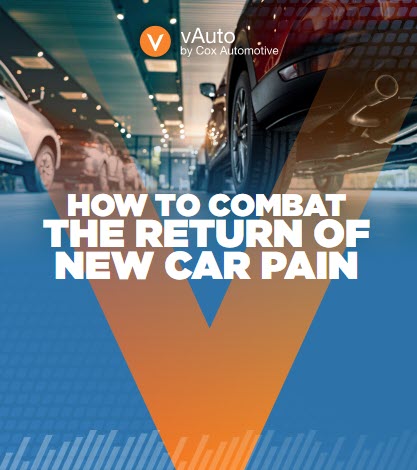An Independent Perspective On The Used Car Business
TJ Riley isn’t your typical independent car dealer.
For one thing, he’s a lot more disciplined than many franchise and independent dealers when it comes to buying vehicles at auctions.
“If you walk out to the Dallas Auto Auction on a Wednesday, it’s just eye-opening the amount of dollars changing hands, based solely on the hairs on the backs of people’s necks. There’s so much opinion, experience and perception driving decisions. There are also other motivations, like your boss said, ‘we sold 50 cars last month, let’s go get 50 more.’ Well, 50 more of what? Should we just go out and buy anything because you need them? These things happen at the auction every day. As an outsider coming into our industry, it’s mind-boggling.
“We ask ourselves two questions, every day. What is the right car, and what is the right price?” he continues. “If you can solve those two questions, and you know the answers as fact, you will win.”
Riley’s disciplined, efficiency-minded perspective follows the lessons learned and successes he achieved as an entrepreneur in construction and manufacturing.
“I gained a lot of understanding about process flow, especially in manufacturing,” he says. “Efficiencies, because of the margins manufacturers have to deal with, is the only way you can survive.”
Riley initially joined the Fort Worth, Texas-based Net Direct Auto Sales as an investor four years ago. He cites several “hard knocks,” mostly associated with buying the wrong cars at the wrong prices, as the catalyst for increasing his operational and ownership stake in the dealership.
Riley and his team set out to sell 25 to 40 vehicles a month—a goal they’ve long since surpassed as they’ve focused on market data and metrics to guide their decisions. The dealership specializes in trucks, a niche Riley identified as under-served and prime to deliver first-mover advantage.
I met Riley at the recent National Automobile Dealers Association (NADA) convention in Las Vegas. I found him to be a sharp student of the business, whose thinking on several fronts seems relevant to share:
Moneyball and used cars: Like me, Riley loved the way former Oakland A’s manager Billy Beane ditched traditional scouting reports, relying instead on player performance data to make roster decisions—the primary focus of Michael Lewis’ book, Moneyball. Riley takes the same approach to his inventory; it doesn’t matter if a buyer thinks a car is a good car, or that it might work. The data has to prove the case before he’ll make the investment.
“Here’s why the car business is so much easier than baseball,” Riley adds. “A car doesn’t wake up and have a bad day. It is what it is. A car is a commodity item. In baseball, or any other sport, there are a mass of human factors that are uncontrollable. A guy has a great year, something happened in his personal life, and he’s not the same player he was. That risk is really mitigated in the car business. The car business is really no different than if I’m trading pork on the market.”
Failure-friendly acquisitions: Across the country, dealers bemoan the effort and time it takes to properly acquire auction vehicles. Riley finds acquisition advantage by making failure a priority. “Our motto is we need to look at four times the average amount of inventory other buyers will look at every day. We have to appraise three times as many vehicles as the average buyer, and we have to be unsuccessful at a three times greater rate,” he explains. “So even if we are unsuccessful at a three times greater rate, but we’ve looked at quadruple the amount of cars and triple the number of appraisals, we still get the inventory we need. The hope is we’ll find the right cars at the right price. It’s just old-fashioned hard work at that point. My job is to make my buyers more and more efficient so that they can do this every day and not kill themselves. The ultimate goal is that they spend their time not on searching for cars, but working on the relationships, so that when they know the right car and the right price, and where it’s located, they have the right relationships in place to get the car.”
Continuous risk reduction: Riley views the used car business as akin to legalized gambling—where the person with the best math will win. “The best mathematicians work at NASA and Las Vegas. They have the metrics to reduce the gamble to as little as possible. You’re never going to get all of the risk out of any business, whether it’s Las Vegas or Wall Street or the car business. But your job as a dealer is to come in every day and reduce the gamble or risk you have in your investment.”
The post An Independent Perspective On The Used Car Business appeared first on Dale Pollak.








